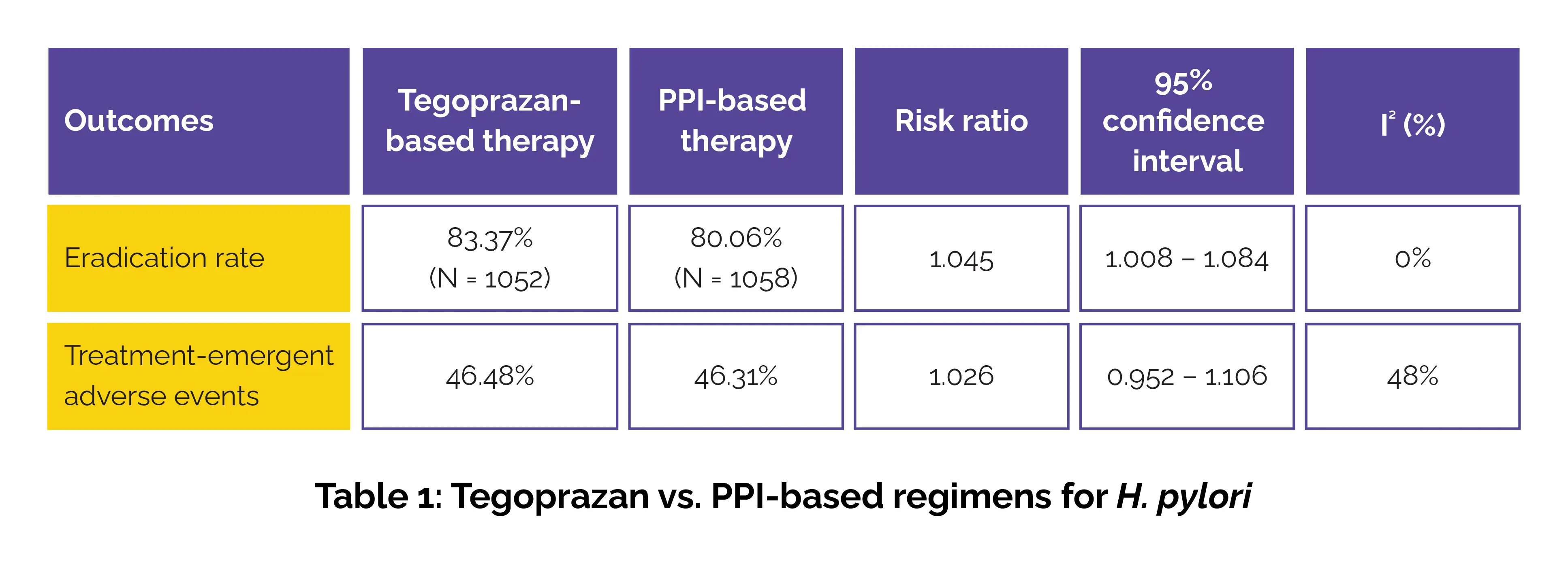Categories
Change Password!
Reset Password!


Терапия на основе тегопразана позволяет достичь более высокой частоты эрадикации H. pylori, чем схемы на основе ИПП, при сопоставимой безопасности.
In a study issued in "JGH Open", tegoprazan-based therapy offered a more effective first-line treatment option for Helicobacter pylori (H. pylori) infection when compared to traditional proton pump inhibitor (PPI)-based regimens.
Concerns over declining eradication rates and potential long-term side effects of PPIs have driven interest in alternative acid-suppressing agents. Tegoprazan, a potassium-competitive acid blocker (P-CAB), has been proposed as a more potent option, though previous findings have been mixed. Hence, this systematic review and meta-analysis sought to explore whether tegoprazan-based therapy is better than PPI-based therapy for eradicating H. pylori.
An extensive search of EMBASE, CENTRAL, MEDLINE, and SCOPUS databases was done. Only randomized controlled trials (RCTs) comparing tegoprazan with any PPI were incorporated. Bias risk was examined via the Cochrane Risk of Bias 2 (RoB2) tool. A random-effects model was employed for calculating pooled risk ratios with 95% confidence intervals based on the intention-to-treat population.
In total, 6 low-risk-of-bias RCTs involving treatment-naïve patients receiving first-line therapy were included. The pooled eradication rates were higher for tegoprazan-based therapy as opposed to PPI-based therapy. The emergence of adverse events during treatment was comparable between the study groups, as shown in Table 1:

These findings support tegoprazan as a promising alternative to PPIs in H. pylori management protocols, potentially enhancing treatment outcomes without compromising safety.
JGH Open
Tegoprazan-Containing Versus Proton Pump Inhibitor-Containing Therapy for First-Line Eradication of Helicobacter pylori: A Meta-Analysis of Randomized Controlled Trials
Daniel Martin Simadibrata et al.
Comments (0)